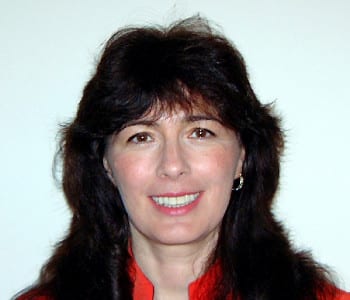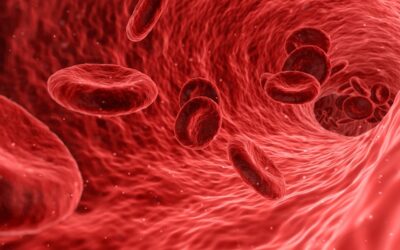Had I, at a tender age, heard her contagiously passionate thoughts on how materials science can help improve people’s lives, no doubt would I have been drawn to studying and working with biological materials.
Joanna Aizenberg studied Physical Chemistry in Moscow and was a graduate student of Structural Biology at the Weizmann Institute of Science. She subsequently moved to Harvard University to pursue postdoctoral research in Materials Chemistry.
She is still based in Massachusetts where she takes the roles of the Professor of Chemistry and Chemical Biology at the Faculty of Arts and Sciences and Amy Smith Berylson Professor of
Materials Science in the School of Engineering and Applied Sciences at Harvard University. There, she also acts as Director of the Kavli Institute for Bionano Science and Technology and the founding faculty of the Wyss Institute for Biologically Inspired Engineering. Professor Aizenberg is a fellow of the American Physical Society, Materials Research Society, Member of the American Academy of Arts and Sciences, and has been the recipient of countless awards and other prestigious fellowships.
But make no quick judgement: her many accolades do not render her an academic bureaucrat. She remains committed to and marveled by the opportunities that researching materials might bring for healthcare applications.
To mark the addition of Professor Aizenberg to the Editorial Advisory Board of Advanced Materials, we asked her a few questions on her scientific life story and motivations. Below are her enthusiastic answers on:
… her upbringing and early interest in science
“I got interested in math and science early in my childhood. I have participated and won most mathematical Olympiads in the middle and high school and always enjoyed problem solving and scientific challenges. Of extreme importance was the influence of my parents, an engineer and a physician, with whom I have been having constant discussions of many areas where science can improve people’s lives.”
“I chose to study chemistry because I felt it had really a lot to offer in the areas of materials, medicine, and consumer products that affect our everyday lives. Its breadth and far reach appealed and continues to appeal to me. There is hardly anything we use or even touch during a day that does not have in it some material that many talented chemists contributed to creating. I feel this is not appreciated enough by the general public and this, in some interesting way, contributes to my motivation to work in the field of materials chemistry.”
… her main fields of interest
“I am interested in various areas – from smart, adaptive, responsive materials, both natural and bioinspired, to the origins and mechanisms of pattern formation and self-assembly across many length scales. My choices are very eclectic and I do not limit my students to any specific area. I like when experiments lead to unexpected results: it is often there where most interesting phenomena are observed that require deeper understanding and creating new theoretical approaches.”
… the major scientific achievements of her career until now
“This is not an easy question. I am in love with all my projects. But to be a little more specific, I will mention four: Achieving precise control over different stages and modes of crystal formation, over their morphology, geometry, and orientation was something that I am very proud of. Discovery of unique multifunctional biological materials, which combine optical and mechanical properties (such as those described for sponges and echinoderms) and which outshine their technological analogs, is the second amazing area. This work, in addition to its fundamental importance, also led me into the field that I am currently pursuing the most – biologically inspired materials. Within the bioinspired materials work, I should mention novel hierarchical dynamic materials and development of omniphobic antifouling coatings.”
… the state-of-the-art issues that most interest her
“Engineering adaptiveness into materials is an area of extreme importance, in my view. Uncovering mechanisms and approaches used by nature, will allow us to achieve more with less, use energy smartly and more efficiently, and preserve the environment, at the same time. The challenge is to design really ‘smart’ materials that respond and adjust to the changing conditions.”
… future scientific paths
“There are so many amazing biological materials. One lifetime is not enough to study even a small fraction of them. This is where my current focus is and I expect it to continue for some time. I am broadly interested in materials that possess either some extreme properties, e.g. omnirepellency, or a unique combination of properties, such as adaptiveness to multiple stimuli that can be switched on and off at will. I am always interested in fundamental principles that govern self-assembly on multiple scales, formation of hierarchical structures and complex patterns, even when I do not have in mind any immediate application of these studies. Sometimes beauty of the observed patterns and structures is motivation enough for me.”
… the reasons to join the advisory board of Advanced Materials
“One can hardly overestimate the importance of integrating interdisciplinary knowledge and know-how in creating better materials. Advanced Materials is on the forefront of this effort and I cannot stress it too much: new materials will solve many problems that we face, both big (finding and effectively utilizing alternative energy sources, saving the environment, feeding ever growing world population) and small (having better consumer products, nicer colors, lighter clothing, etc., etc.). I am happy to do my part in ensuring that Advanced Materials continues to provide outlet for the most cutting edge scientific work that is of highest importance and quality.”
Many of the present and past studies of Professor Aizenberg can be found in Advanced Materials, Advanced Functional Materials, and Small. She has also guest-edited Special Issues for Advanced Materials and Advanced Functional Materials.
More information on the work by Joanna Aizenberg and her team can be found on the homepage of the The Aizenberg Biomineralization and Biomimetics Lab.


















